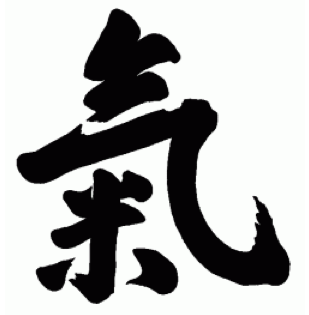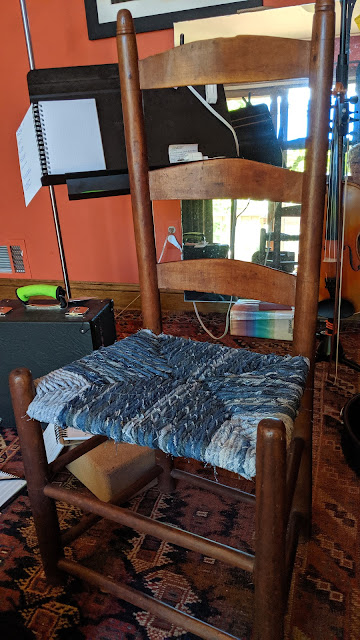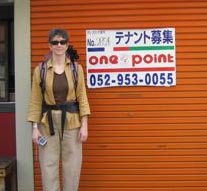What is Ki?
The concept of Ki, or lifeforce, exists in many cultures. In Chinese it's Chi or Qi, in Sanskrit, Prana. In western culture, while we may say someone has a soul that is distinct from their physical body, the soul is connected to the individual. Ki, as it is understood in Japanese culture, is a universal force that permeates everything. Individuals may manifest more or less ki, but it is a connecting force between everyone and everything.
In Japan, ki is an everyday concept that's found in many common phrases. For example the phrase "O ki o tsuke te," which means "take care," literally means, "apply ki." "O genki desu?" the most common way to say "How are you?" means, literally, "Do you have ki?" "Ii kimochi," a phrase heard often, particularly in popular songs, means "(What a) good feeling." "Ii" means "good" and "kimochi" literally means having, or holding ki.
Sensei often says that practical application of the four basic principles "equals ki," but he doesn't talk much about ki itself. This may be because he feels that the concept is more foreign to westerners, and I have to say I agree that it is. Even now, after over 20 years of practice in Kokikai Aikido, I still struggle with the question: "Is ki real?"
I have experienced the effects. I can touch someone and immediately know where their balance is, where they are stiff, where they are relaxed, but surely that's just sensitivity and experience, not ki. Some days I feel absolutely brimming with life and happiness, and when I walk down the street, guys drive by in delivery vans and wave and wink at me, and frowny-faced young men in low-slung pants and do-rags say, "Hey, how ya doin'?" (FYI I am gray haired and pretty ordinary-looking). Is that ki, or is it just because of my posture and smile? Leon Brooks Sensei walks into the dojo and everyone sits up straighter. He counts as we do our ki exercises at the beginning of class and everyone in the room becomes more energized and alive. Is that ki? Is ki real?
Well, I don't know. And I don't think it matters if I know. If the concept helps me practice, then I'll use it.
In Japan, ki is an everyday concept that's found in many common phrases. For example the phrase "O ki o tsuke te," which means "take care," literally means, "apply ki." "O genki desu?" the most common way to say "How are you?" means, literally, "Do you have ki?" "Ii kimochi," a phrase heard often, particularly in popular songs, means "(What a) good feeling." "Ii" means "good" and "kimochi" literally means having, or holding ki.
Sensei often says that practical application of the four basic principles "equals ki," but he doesn't talk much about ki itself. This may be because he feels that the concept is more foreign to westerners, and I have to say I agree that it is. Even now, after over 20 years of practice in Kokikai Aikido, I still struggle with the question: "Is ki real?"
I have experienced the effects. I can touch someone and immediately know where their balance is, where they are stiff, where they are relaxed, but surely that's just sensitivity and experience, not ki. Some days I feel absolutely brimming with life and happiness, and when I walk down the street, guys drive by in delivery vans and wave and wink at me, and frowny-faced young men in low-slung pants and do-rags say, "Hey, how ya doin'?" (FYI I am gray haired and pretty ordinary-looking). Is that ki, or is it just because of my posture and smile? Leon Brooks Sensei walks into the dojo and everyone sits up straighter. He counts as we do our ki exercises at the beginning of class and everyone in the room becomes more energized and alive. Is that ki? Is ki real?
Well, I don't know. And I don't think it matters if I know. If the concept helps me practice, then I'll use it.



Comments
Post a Comment